- Home
- Linda Castillo
Shamed Page 3
Shamed Read online
Page 3
I reach out and squeeze her little knee. “I’m going to go get your mamm and datt.”
Rising, I dig my keys from my pocket, turn to Mona and the deputy. “We need to look around for the girl. Set up a perimeter. Protect the scene. We’ve got a male subject who’s possibly taken a little girl. I want all hands on deck.” I address Mona. “Tell T.J. and Pickles to canvass the area,” I say, referring to my officers by their nicknames. “Tell Glock and Skid to clear the barn and outbuildings, and fan out from there. Call the sheriff’s department, see if they have someone with dogs. I want the property searched and I want everyone on scene mindful of evidence. Everything gets marked and preserved.”
“Got it.”
Yanking out my phone, I hit the speed dial for John Tomasetti and start toward the Explorer. He’s an agent with the Ohio Bureau of Criminal Investigation. He’s also my significant other and the love of my life. Painters Mill falls within his region. We’ve worked together on several cases. In fact, that’s how we met. He’s aggressive and thorough and good at what he does. At the moment, I’m glad I have someone like him to count on.
He picks up on the second ring. “I hear you’ve got a body and a missing juvenile on your hands,” he says without preamble.
“Word travels fast.” Some of the tension building in my chest eases at the sound of his voice. I lay out what little I know. “I think the five-year-old saw the killer, and I think she may have seen him take her sister.”
“One man?”
“I think so. This kid is traumatized, so I need someone good to come down and talk to her. I need to know what she saw and I need it five minutes ago.”
“I’m on it,” he says.
“Tomasetti, this woman wasn’t just stabbed. She was…” The image of Mary Yoder’s butchered body flashes in my mind’s eye. “She was cut to pieces.”
“Sounds personal.”
“And now he may have a little girl. I’m going to check with the parents, confirm it before we pull out all the stops.” I hit the fob to unlock the Explorer.
“I’ll be there in twenty minutes,” he says.
I hit END and drop the cell into my pocket. I’ve just opened the door when I spot the Amish man running toward me, a boy of about nine or ten hot on his heels. I recognize him immediately as Ivan Helmuth. More than likely he heard the sirens or saw the police vehicles pulling in, and came down to see what happened. His expression tells me he’s worried as hell.
“Chief Burkholder!” he calls out.
I go to him. “Mr. Helmuth—”
“What happened?” he says. “Why are all of these police here? Where are my children? My mother-in-law?”
“I’ve got one girl in the car, sir. She’s okay.”
“One? But…” Leaving the sentence unfinished, he rushes to the vehicle, pushes past Mona and the deputy, and looks into the car. “Annie.” He pulls the girl into his arms.
“Datt!” Sobbing, the little girl clings to him.
“Where is your shveshtah?” he asks. Sister. “Your grossmammi?”
“Da Deivel got Grossmammi!” the little girl cries. “He took Elsie!”
“What?” The Amish man is so startled by the assertion that he presses his hand against his chest and stumbles back. “Took her? Da Deivel?” His eyes find mine. “Where are they, Chief Burkholder? What’s happened here?”
“Mr. Helmuth.” I set my hand on his arm, let my eyes slide to the little girl. “I need to speak with you privately.”
His eyes connect with mine; then he looks down at the boy who’d followed him over. “Bleiva mitt die shveshtah.” Stay with your sister.
Looking shell-shocked, he lets me lead him a few feet away. When we’re out of earshot of the children, I stop and turn to him. There’s no easy way to tell him what needs to be said. There’s no way to cushion the blow or ease the deluge of terror that will follow.
“Mr. Helmuth, Mary Yoder is dead. She’s inside the house.” I motion toward the structure a hundred yards away where half a dozen deputies mill about.
“What?” He blinks, disbelieving, staring at me as if I’ve played some cruel joke on him and he’s expecting me to slap him on the back and admit all of this is a hoax.
“But … dead? How—” He bites off the word, his eyes zeroing in on mine. “It’s not possible. Mary was fine when she left earlier.”
I struggle to find the right words. Pose them in some way or put them in some order that won’t send him into a panic, but the only thing that comes are facts that will be excruciating for him to hear. “All I know at this point is that Mary Yoder is dead and we haven’t been able to locate the other girl.”
“Elsie?” He struggles for calm. “We need to find her,” he snaps. “She’s got to be around here somewhere.”
“She’s not in the house. We’re searching the property now. Is it possible she’s at home?”
“No, she was with her sister and grandmother.”
“Mr. Helmuth, there was foul play involved—”
“You mean someone did this thing?”
I nod. “Annie told me a man took Elsie. We have reason to believe it was the same man who attacked your mother-in-law.”
“Took her? Mein Gott.” Comprehension suffuses his face. His mouth opens, but he doesn’t speak. He stares at me; the brim of his hat begins to shake. “Who?”
“I don’t know.”
“We must find Elsie,” he says. “She’s just a child.”
His entire body is vibrating with a terror he can’t contain. Raising his hand, he presses his thumb and forefinger to his eyes. “Chief Burkholder, what happened to my mother-in-law? How did she…”
Not wanting to upset him further when I don’t yet have all the facts, I fudge. “I’m not sure, but it’s bad.”
He nods, but he looks bewildered and blindsided. Most of all he looks terrified. “Miriam will want to know.”
I don’t suspect this man of anything, but as we talk, I find myself looking for blood on his clothes, on his hands. Any wounds. There’s nothing there. “Mr. Helmuth, is it possible a neighbor or family member picked up Elsie? Took her home?”
“No,” he snaps, growing increasingly anxious. “My children were here with their grossmuder. Gathering walnuts. That is all.”
“Is it possible Elsie got scared and ran home?”
“I didn’t see her, but…”
“We need to check.” I motion toward the Explorer and we start toward it. “Do you have a phone at your house?”
“No.”
“I know this is a lot to take in. But time is of the essence. We need to hurry. Grab Annie and come with me.”
Snapping out of his fugue, the Amish man looks at the boy. “Bringa da waegli haymet,” he tells him. Bring the buggy home.
“Take the horse,” I tell him. “Leave the buggy. I need to check it for evidence.”
The man nods at the boy and then we’re off.
A minute later, I pull into the gravel lane of the Helmuth farm, driving too fast, and park in the driveway behind the house. Helmuth opens the passenger door before I’ve even brought the Explorer to a complete stop and scrambles from the vehicle.
“Miriam!” he calls out as he rushes toward the back porch. “Finna Elsie! Finna Elsie!” Find Elsie.
The screen door squeaks open. A heavyset Amish woman with hips as wide as the doorway and a kind, tired face looks out at the man running toward her. “Was der schinner is letz?” What in the world is wrong?
“Elsie is missing,” he says as he reaches her. “Did she come home?”
“No,” the woman says, looking startled. “She went with—”
He cuts her off. “Search the house. I’ll look in the barn.”
He trots toward the barn. The woman shoots a worried, questioning look my way, then disappears inside.
I get out of the Explorer and open the door for the girl in the backseat. She’s not making a sound, but her cheeks are shiny with tears. I notice the dried blood
on her hands again, and a quiver of sympathy moves through me. “Let’s go inside, sweetheart.”
Taking her hand, I walk with her to the back door. We enter a mudroom with dirty plywood floors and a wall of windows to my right. An old wringer washing machine squats in the corner. A dry sink against the wall. A clothesline bisects the room at its center, half a dozen pairs of trousers hanging to dry.
Annie and I have just stepped into the kitchen when the screen door slams. Footsteps pound and then Ivan Helmuth enters the room. “She’s not in the barn,” he says breathlessly.
I hear shoes in the hallway and then Miriam enters the kitchen. “Elsie’s not upstairs. She’s not in the cellar. Why are you looking for her? What’s happened? Where’s Mamm?”
“Elsie’s missing.” Ivan’s voice breaks. “Mary is … gone.”
“Gone? But … what do you mean? You don’t know where she is? Ivan, Mamm is with the children. They were—” The Amish woman’s gaze lands on Annie; her eyes go wide when she spots the blood. “Mein Gott.” She rushes to the child, falls to her knees, and takes the girl into her arms. “Are you hurt? How did you get that blood on you?” she asks in Deitsch.
“Da Deivel,” the little girl whispers.
Miriam pales; even her lips go white. “What is she saying?” She pushes her daughter to arm’s length to get a better look at her. “Whose blood is this? Where did it come from?”
As she clutches the little girl, the Amish woman’s eyes dart to her husband, then me, her voice rising with each word she utters. “Chief Burkholder? What’s happened?”
“Mrs. Helmuth, I need to speak to you and your husband privately.” I let my eyes slide to the little girl.
Taking the girl by her hand, the Amish woman rushes from the kitchen, goes to the base of the stairs, and calls out. “Irma!”
A girl of ten or eleven clatters down the steps, but slows upon spotting us, her eyes flicking from her mother to me and back. “What’s wrong?”
“Take Annie. Get her cleaned up.”
The girl’s eyes widen when she sees the blood. “Oh!”
“Go on now. Get her washed up. Quick.”
When the children are gone and we’re seated, I tell them everything.
“Mamm passed? But…” Miriam leans forward, covers her face with her hands, and begins to rock. “Elsie. Gone? Mein Gott. It’s too much. I can’t believe it.”
Ivan looks at me. “Who would do this terrible thing?”
“Did your mother-in-law have any enemies?” I ask. “Any disagreements or arguments with anyone?”
The couple exchange looks, as if the answer lies in the other person’s face. “No,” Ivan says after a moment.
“Maybe it was something that didn’t seem important at the time?” I press, trying to get them to work through the shock of grief and fear for their daughter and think.
“No.” The Amish man shrugs. “Nothing.”
“Has anything unusual happened to Annie or Elsie recently? Any strange incidents? Maybe while you were in town? Shopping? Running errands? Maybe someone said something that struck you as odd?”
He shakes his head adamantly. “No.”
“Any problems with family members? Or neighbors? Any arguments or bad blood? Money disputes?”
“No,” he tells me. “Nothing like that.”
“Have you had any workers here at the farm? Day laborers? Repairmen?”
“I do everything myself,” Ivan says.
I give the questions a moment to settle, and shift gears. “How many children do you have?”
Miriam raises her head, fear and misery boiling in her expression. “Eight.”
“Any problems with any of them?”
“Of course not,” Miriam snaps. “We are Amisch.” As if that explains everything. In a way, it does.
“Have you noticed any strangers in the area? Any cars or buggies you didn’t recognize? Anyone on the road? On your property?”
Ivan gives another head shake. “No.”
“I just want my baby.” Miriam begins to cry. “She must be so frightened.” She raises her gaze, her eyes beseeching. “Please, Chief Burkholder. Elsie is … special. Sweet and innocent. She won’t understand what’s happening.”
The word “special” gives me pause. “Elsie is special needs?” I ask.
“She’s a slow learner. We took her to the clinic and she was diagnosed with Cohen syndrome when she was four. Please, we’ve got to find her. She’s so sweet. So innocent.”
Cohen syndrome is a rare gene disorder that’s slightly more common among the Amish owing to marriage patterns and a smaller gene pool. It carries with it a host of problems, including delayed physical development and intellectual disability.
I set my hand on the Amish woman’s arm. “Do you have a photo of Elsie?”
“We do not take photos of the children.”
“Can you tell me what she looks like? What was she wearing?”
She describes the girl—seven years old, blue dress, brown hair and eyes. Slightly overweight. Thick, round eyeglasses. I jot everything in my notebook. All the while I feel as if I’m being pulled in a dozen different directions. The urge to get back to the scene is powerful. The need to work the case eats at me. I need to look at the evidence. Find it. Churn it. Answer the questions pounding my brain. No one does something like what was done to Mary Yoder without some perceived reason, without leaving something behind. It’s my job to find it—and fast.
More than anything, I want to find the girl. That need is tempered by the knowledge that the information-gathering phase of the investigation—speaking with family and friends and possible witnesses—is critical. The majority of homicide victims know their killers. Most kidnappings are committed by family members. If either of those statistics is true in this instance, the most vital information I receive will come from the people closest to Elsie: her family, right here and now.
“Mr. and Mrs. Helmuth, you mentioned Mary and your two daughters went to the house to pick up walnuts. Has Mary ever had any problems there? Any strangers hanging around? Or signs of vandalism? Graffiti? Tire tracks? Anything unusual?”
Miriam shakes her head. “She never mentioned anything. I just can’t believe…” Looking as if she’s going to be sick, she presses her hand to her mouth. “Oh, dear Lord.”
Ivan nods. When his gaze meets mine, his expression is grim. “She had words with the Graber boy once. He lives over to Rockridge Road.”
“Big Eddie,” Miriam says in a small voice.
The mention of “Big Eddie” garners my attention. The Graber farm abuts the Helmuth property; they share the back fence. The family is Amish. Eddie is a teenager; I’ve seen him around town or walking along the road. He’s a troubled kid with a tragic story. A near drowning a decade ago left him with brain damage.
The one and only time I ever had reason to interact with him was an incident at the Butterhorn Bakery. According to owner Tom Skanks, Big Eddie bought six apple fritters, and proceeded to eat all of them before leaving the bakery. Some non-Amish teenagers made fun of Eddie and a fight broke out. By the time I got there, Eddie had two of the kids on the ground, and they were bloodied and bruised. It was a nasty scene with an ugly origin: the bullying of a mentally challenged teenage boy. No charges were pressed, but the incident put Eddie on my cop’s radar.
“What happened with Big Eddie?” I ask.
“We caught him spying on the girls when they were swimming down to the creek,” the Amish woman blurts. “He tried to get our oldest to … take off her underwear and go into the woods with him.” She looks away, shakes her head. “Asked her to ‘show him her thing.’”
“Did he touch her?” I ask.
The Amish woman shakes her head. “No.”
“Did you talk to Eddie’s father?”
Ivan raises his gaze to mine. “I told him about it. He said he’d keep an eye on him.”
“Anything since?” I ask.
“Last year. Eddie was
walking by the old Schattenbaum place. Our boys were there, gathering walnuts. There was a fight. I found out later our boys threw some walnuts at Eddie while he was walking by.” The Amish man looks down, ashamed.
“We’re not proud of what our boys did,” Miriam says.
“Anyone get hurt?” I ask.
Ivan shakes his head.
“Elam had a black eye,” Miriam puts in.
“Figured he deserved it,” the Amish man mutters.
“How old were your boys at the time?” I ask.
“Elam was seven.”
Too young to get punched in the face by a teenager twice his age and three times his size—even if he did deserve it. “Is there bad blood between your family and Big Eddie?” I ask. “His family?”
“Lord, no.” Miriam shakes her head. “We see them every couple of weeks at worship. Eddie’s a sweet thing usually, but he’s got a temper, gets mean when he’s mad.”
Ivan looks down at his hands, grimaces. “We try to look the other way. But…”
“I’ll talk to them.” I pause. “Look, I know Annie has been through a lot. But I need to ask her some questions.”
The couple exchange another look. After a moment, Ivan tips his head at his wife.
Miriam rises. “I’ll fetch her.”
A few minutes later, the four of us are seated at the kitchen table. Annie is sitting in her mother’s lap. Miriam has her arms wrapped around her daughter, and she can’t seem to stop kissing the top of her head. The woman is doing her utmost to remain calm and maintain her composure, if only for the child’s sake, but she’s not quite managing.
Annie’s hands and face are clean, and she’s wearing a fresh dress. Miriam supplied me with the soiled one, which I tucked into a gallon freezer bag I keep in my vehicle. I’ll send it to the BCI lab to have the blood tested. Chances are it belongs to Mary Yoder, but you never know when you might get lucky. Oftentimes, an attacker with a knife will cut himself in the frenzy, which would supply us with DNA.
“Hi, sweetheart,” I begin.
The little girl’s eyes slide away from mine. Lifting her hand, she puts her thumb in her mouth and starts to suck. Miriam gently takes the child’s hand and lowers it. “Chief Katie has a few questions for you, my little peach.”

 A Hero to Hold
A Hero to Hold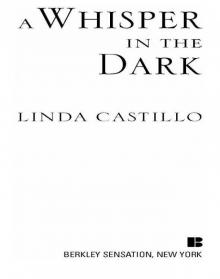 A Whisper in the Dark
A Whisper in the Dark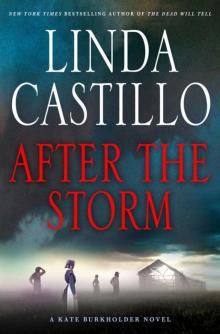 After the Storm
After the Storm A Baby Before Dawn
A Baby Before Dawn Breaking Silence
Breaking Silence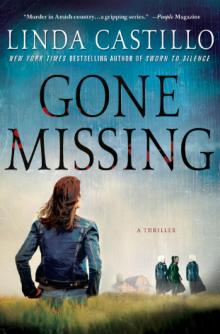 Gone Missing
Gone Missing Long Lost
Long Lost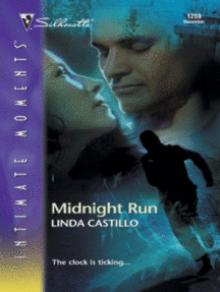 Midnight Run
Midnight Run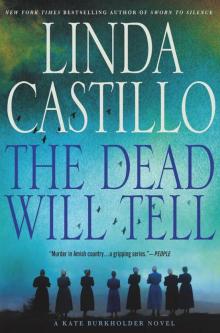 The Dead Will Tell
The Dead Will Tell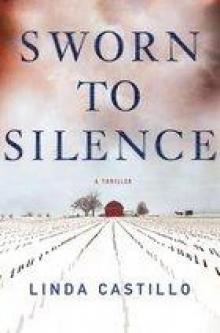 Sworn to Silence
Sworn to Silence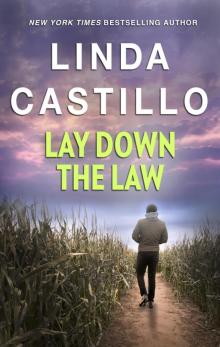 Lay Down the Law
Lay Down the Law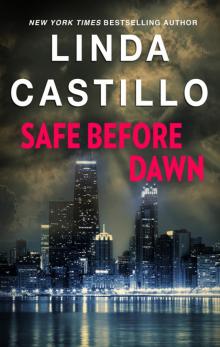 Safe Before Dawn
Safe Before Dawn Depth Perception
Depth Perception Seeds of Deception
Seeds of Deception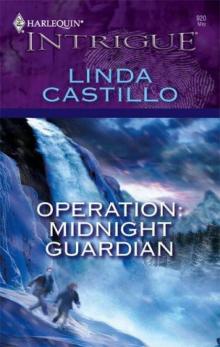 Operation: Midnight Guardian
Operation: Midnight Guardian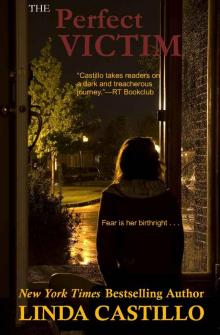 The Perfect Victim
The Perfect Victim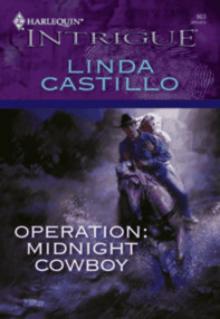 Operation: Midnight Tango
Operation: Midnight Tango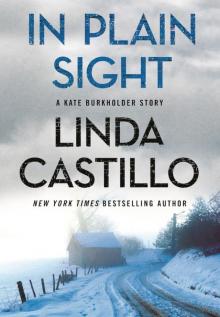 In Plain Sight (Kate Burkholder)
In Plain Sight (Kate Burkholder) Shamed
Shamed Fallen
Fallen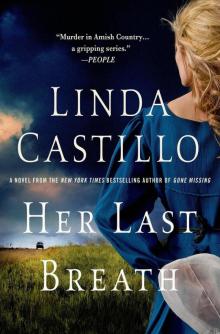 Her Last Breath
Her Last Breath Remember the Night (Men in Blue)
Remember the Night (Men in Blue) Dead Reckoning
Dead Reckoning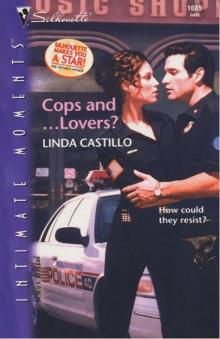 Cops and ... Lovers?
Cops and ... Lovers? The Pact
The Pact A Simple Murder
A Simple Murder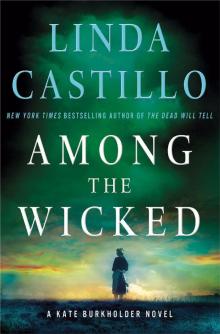 Among the Wicked
Among the Wicked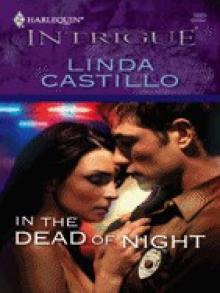 In the Dead of Night
In the Dead of Night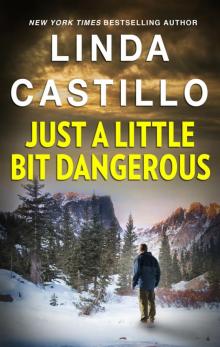 Just a Little Bit Dangerous
Just a Little Bit Dangerous The Phoenix Encounter
The Phoenix Encounter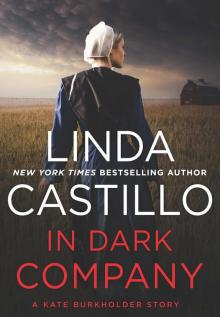 In Dark Company
In Dark Company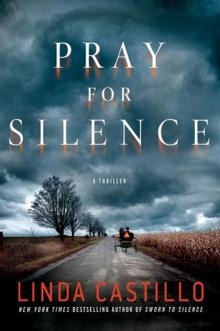 Pray for Silence
Pray for Silence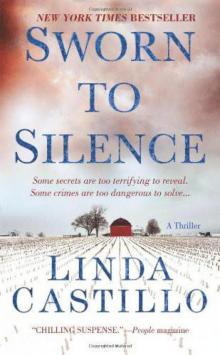 Kate Burkholder 01-Sworn to Silence
Kate Burkholder 01-Sworn to Silence Remember the Night
Remember the Night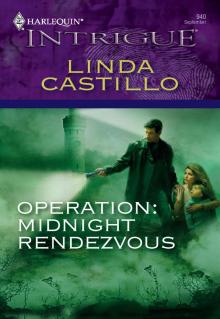 Operation: Midnight Rendezvous
Operation: Midnight Rendezvous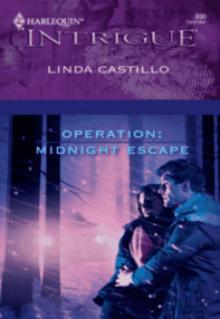 Operation: Midnight Escape
Operation: Midnight Escape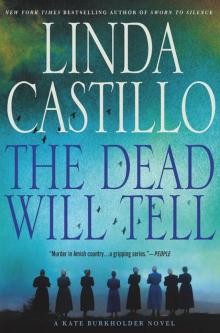 The Dead Will Tell: A Kate Burkholder Novel
The Dead Will Tell: A Kate Burkholder Novel Seeds of Deception: A Kate Burkholder Short Story
Seeds of Deception: A Kate Burkholder Short Story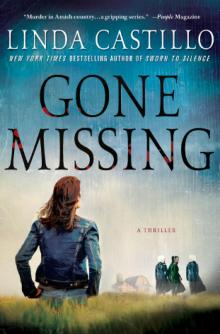 Gone Missing (Kate Burkholder 4) kb-4
Gone Missing (Kate Burkholder 4) kb-4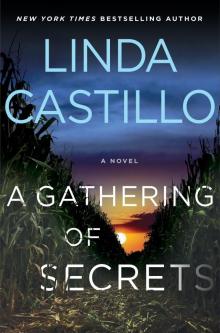 A Gathering of Secrets
A Gathering of Secrets Seeds of Deception: A Kate Burkholder Short Story (Kindle Single)
Seeds of Deception: A Kate Burkholder Short Story (Kindle Single)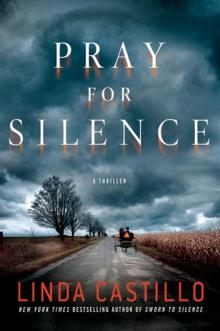 Pray for Silence kb-2
Pray for Silence kb-2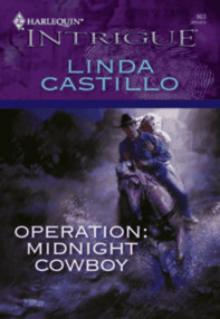 Operation: Midnight Cowboy
Operation: Midnight Cowboy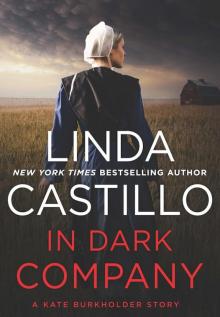 In Dark Company_A Kate Burkholder Short Mystery
In Dark Company_A Kate Burkholder Short Mystery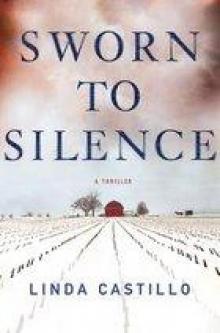 Sworn to Silence kb-1
Sworn to Silence kb-1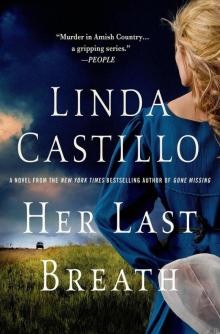 Her Last Breath: A Kate Burkholder Novel
Her Last Breath: A Kate Burkholder Novel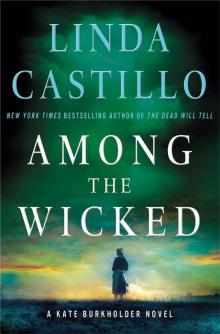 Among the Wicked: A Kate Burkholder Novel
Among the Wicked: A Kate Burkholder Novel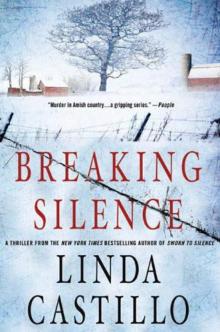 Breaking Silence kb-3
Breaking Silence kb-3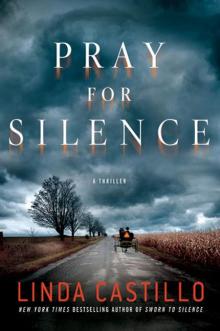 Kate Burkholder 2 - Pray for Silence
Kate Burkholder 2 - Pray for Silence Long Lost: A Kate Burkholder Short Story
Long Lost: A Kate Burkholder Short Story